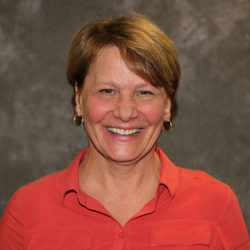About
Dr. Kelley Conrad has served as the Provost and Chief Student Services Officer since 2021. Before that she was the Vice President for Academic Affairs from 2017 to 2021, and Department Chairperson for the Counseling and Advising Center, where she was Chairperson and counselor from 1996 to 2017.
Before joining MCC in 1995, Kelley worked for two years in private practice counseling, primarily providing assessments and counseling to students with learning disabilities.
From 1986 to 1993 Kelley was a Counselor and Director of the TRIO Student Support Services Program at Grand Valley State University. This program provided services to improve the educational, social, and cultural experiences of students who were first-generation, low-income, and/or students with disabilities. In addition to working directly with a caseload of students, Kelley supervised the staff, wrote, and administered the federal grant, and brought the program into compliance with federal regulations.
Kelley’s first professional position after college was Children’s Protective Services caseworker, where she learned the root cause of many family problems are social problems brought on by generational poverty, systemic racism, and lack of education. It was that experience that led to Kelley’s career in higher education, where, with support, students have the opportunity to improve their lives and the lives of their children and families.
Kelley was a co-lead on the MCC team to launch the college’s membership in Achieving the Dream in 2010. Since then, she has been very involved in MCC’s student success agenda to increase student retention and completion.
A Licensed Professional Counselor, Kelley earned a Ph.D. in Educational Leadership: Higher Education, as well as a Master of Arts in Counselor Education and Counseling Psychology, from Western Michigan University. She earned a Bachelor of Arts with majors in Psychology and History from Alma College. Her dissertation research focused on the experiences of community college mid-level leaders who had been charged with leading a major change initiative at their colleges. Kelley explored the lived experiences of those leading transformational change efforts from positions with limited authority.


